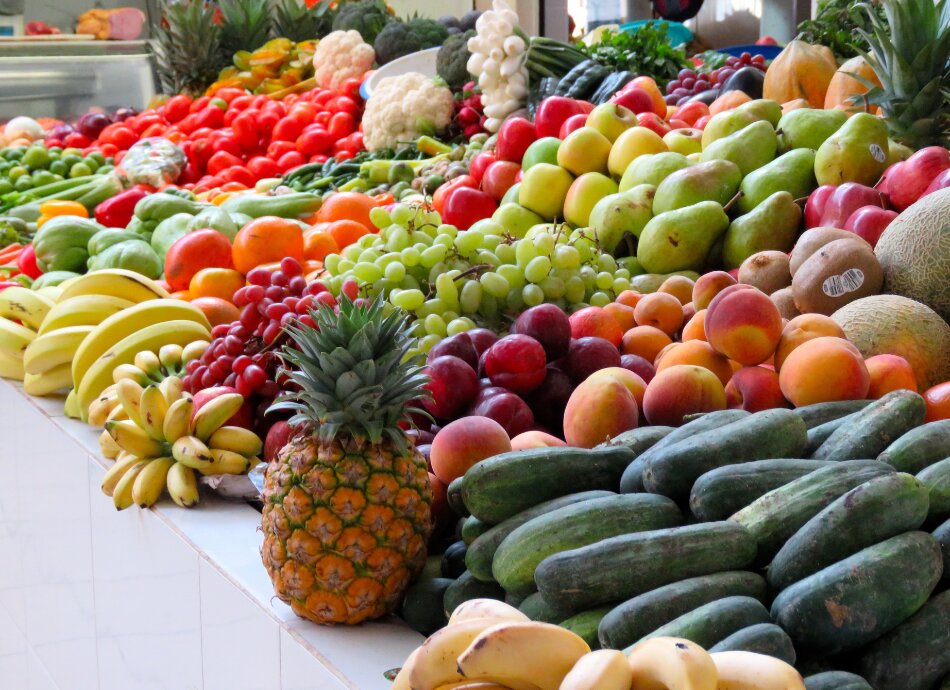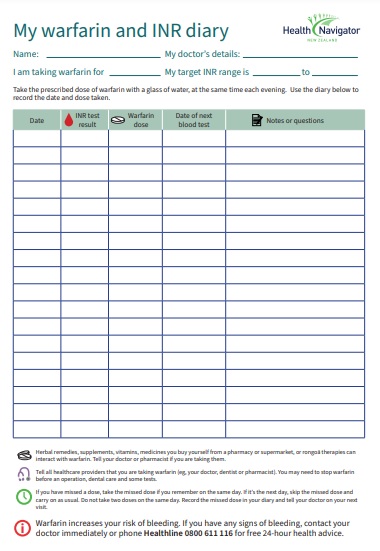Warfarin and diet
Key points about warfarin and diet
- What you eat and drink can affect warfarin.
- The most important thing is to keep your diet stable.
- If you make any changes to your regular diet, tell your doctor, nurse or pharmacist.

Warfarin interferes with how your liver uses vitamin K taken from your diet. Some foods are rich in vitamin K and these can affect how warfarin works. As part of a healthy balanced diet, you can continue to eat foods that contain vitamin K in moderate amounts. You don’t need to change your regular eating habits. There is no “correct” amount of vitamin K that you should eat. But, it is important to avoid large changes in the amount of food you eat containing vitamin K.
It is also important to consider the amount of vitamin K you are eating in situations when your diet may change, such as during illness, travel, fad diets, hospitalisation and after surgery. Before making any changes to your diet talk to your health professional.
| Foods that are rich in vitamin K | |
Vegetables
|
Fruit
|
Alcohol affects your liver. If you are taking warfarin, it is fine to drink small amounts of alcohol. Generally, 1 to 2 standard drinks per day are considered a safe limit. Having more than this can increase your risk of bleeding. Avoid drinking large amounts of alcohol over a short time. Read more about what is a standard drink.
Some herbal or 'natural' products are known to have an effect on warfarin.
Always check with your doctor or pharmacist before taking herbal preparations or dietary supplements. Let them know if you are already taking supplements when warfarin is prescribed for you.
| Examples of herbal or 'natural' products known to have an effect on warfarin | |
|
|
These are fine to take, but check the label and choose a brand without vitamin K.
Warfarin and your diet(external link) Heart Foundation, NZ
Resources
Warfarin and INR diary [PDF, 131 KB] Healthify He Puna Waiora, NZ English [PDF, 131 KB] Cook Islands Māori [PDF, 246 KB]
5 questions to ask about your medications(external link) Health Quality and Safety Commission, NZ, 2019 English(external link), te reo Māori(external link)
Medicines and side effects(external link) Healthify He Puna Waiora, NZ, 2024
References
- Tan C, Lee S. Warfarin and food, herbal or dietary supplement interactions.(external link) Br J Clin Pharmacol 2020;87(2):352-374.(external link)
- Campbell P, Gallus A. Managing warfarin therapy in the community.(external link) Aust Prescr. 2001;24:86-9(external link)
- Interactions with warfarin(external link)(external link) BPAC, NZ, 2007
Brochures

Healthify He Puna Waiora, NZ
English [PDF, 131 KB]Cook Islands Māori [PDF, 246 KB]

Health Quality and Safety Commission, NZ, 2019 English, te reo Māori

Medicines and side effects
Healthify He Puna Waiora, NZ, 2024
Credits: Sandra Ponen, Pharmacist, Healthify He Puna Waiora. Healthify is brought to you by Health Navigator Charitable Trust.
Reviewed by: Maya Patel, Pharmacist, Auckland
Last reviewed:
Page last updated:





